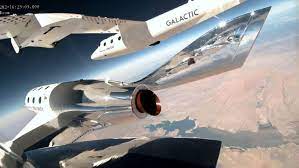Space tourism, once a concept relegated to the realm of science fiction, is rapidly becoming a tangible reality. With advancements in technology and a growing interest from both private companies and individuals, the future of space tourism and commercial spaceflight holds immense promise and potential.
Introduction to Space Tourism
Space tourism refers to the concept of individuals traveling to space for recreational, leisure, or adventure purposes. It represents a significant shift in the traditional space exploration paradigm, where government agencies like NASA dominated missions.
Historical Overview of Space Tourism
The idea of space tourism dates back several decades, with early concepts emerging in the 1960s. However, it wasn’t until the early 2000s that the first paid space tourist, Dennis Tito, boarded the International Space Station (ISS), marking a milestone in commercial spaceflight.
Advancements in Commercial Spaceflight
Recent years have witnessed remarkable progress in commercial spaceflight, driven largely by private companies such as SpaceX, Blue Origin, and Virgin Galactic. These companies have developed innovative technologies and reusable launch systems, significantly reducing the cost of space travel.
Key Players in the Space Tourism Industry
SpaceX, founded by Elon Musk, has emerged as a frontrunner in the space tourism industry, with its ambitious plans for missions to Mars and the development of the Starship spacecraft. Blue Origin, led by Jeff Bezos, is also making strides with its New Shepard suborbital vehicle, while Virgin Galactic aims to offer suborbital spaceflights to paying customers.
The Role of Technology in Shaping the Future of Space Tourism
Advancements in technology, such as lightweight materials, 3D printing, and artificial intelligence, are revolutionizing space travel. These innovations are enhancing spacecraft efficiency, safety, and passenger comfort, making space tourism more accessible and feasible.
Challenges and Risks Associated with Space Tourism
Despite the excitement surrounding space tourism, significant challenges and risks persist. These include technical hurdles, regulatory obstacles, health considerations for passengers, and the potential for accidents or emergencies in space.
Environmental Impact Considerations
The environmental impact of space tourism is a growing concern, with emissions from rocket launches and space debris posing potential threats to Earth’s atmosphere and ecosystems. Efforts are underway to develop sustainable practices and mitigate these environmental risks.
Future Prospects and Developments in Space Tourism
The future of space tourism looks promising, with ongoing advancements in technology, increasing private investments, and a growing demand for unique off-world experiences. Potential developments include lunar tourism, orbital hotels, and extended space missions to destinations like Mars.
Economic Implications and Growth Potential
Space tourism has significant economic implications, with the potential to create jobs, stimulate innovation, and drive economic growth in related industries. Market analysts project exponential growth in the space tourism sector, with billions of dollars in revenue expected in the coming decades.
Legal and Regulatory Framework for Space Tourism
As space tourism evolves, the need for a comprehensive legal and regulatory framework becomes increasingly critical. Issues such as liability, safety standards, and international cooperation must be addressed to ensure the responsible and sustainable development of the industry.
Ethical Considerations in Space Tourism
Ethical concerns surround space tourism, including questions of equity, access, and the commercialization of space. Debates arise over prioritizing tourism over scientific exploration, as well as the potential impact on indigenous cultures and celestial bodies.
Safety Measures and Protocols
Ensuring the safety of space tourists is paramount, requiring rigorous testing, training, and risk management protocols. Companies must prioritize passenger safety and well-being throughout all stages of the space travel experience.
Space Tourism Destinations and Experiences
Space tourism offers a range of destinations and experiences, from suborbital joyrides to extended stays on the ISS or future space habitats. These experiences promise awe-inspiring views, exhilarating zero-gravity environments, and the opportunity to contribute to scientific research.
Impact on Scientific Research and Exploration
While primarily focused on leisure and adventure, space tourism also has the potential to advance scientific research and exploration. Tourists may participate in experiments, technology demonstrations, and educational programs, contributing valuable data and insights to our understanding of space.
Conclusion: Embracing the Future of Space Tourism
In conclusion, the future of space tourism and commercial spaceflight is filled with excitement, innovation, and opportunity. As technology continues to advance and private companies push the boundaries of space exploration, humanity stands on the brink of a new era of interplanetary travel and discovery.
